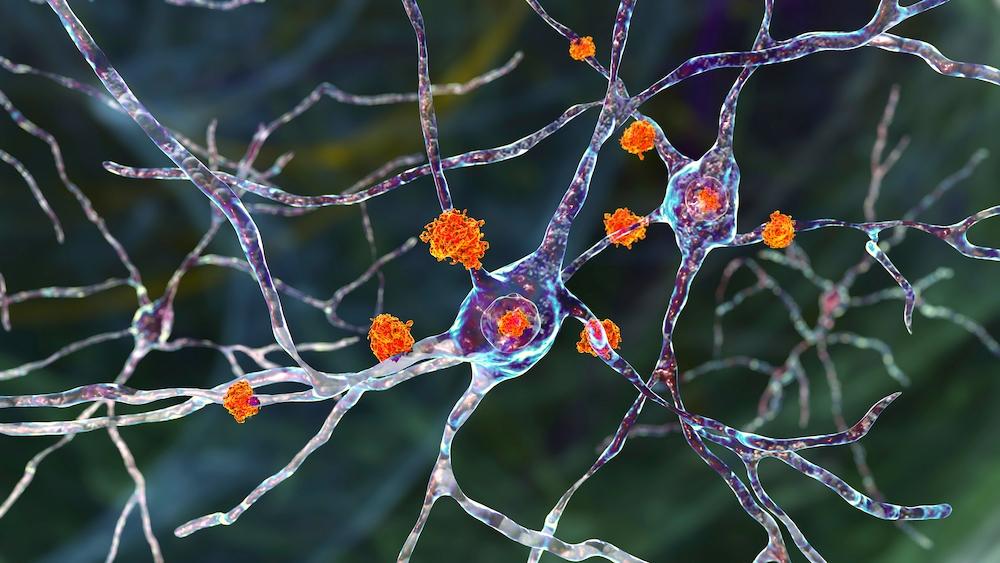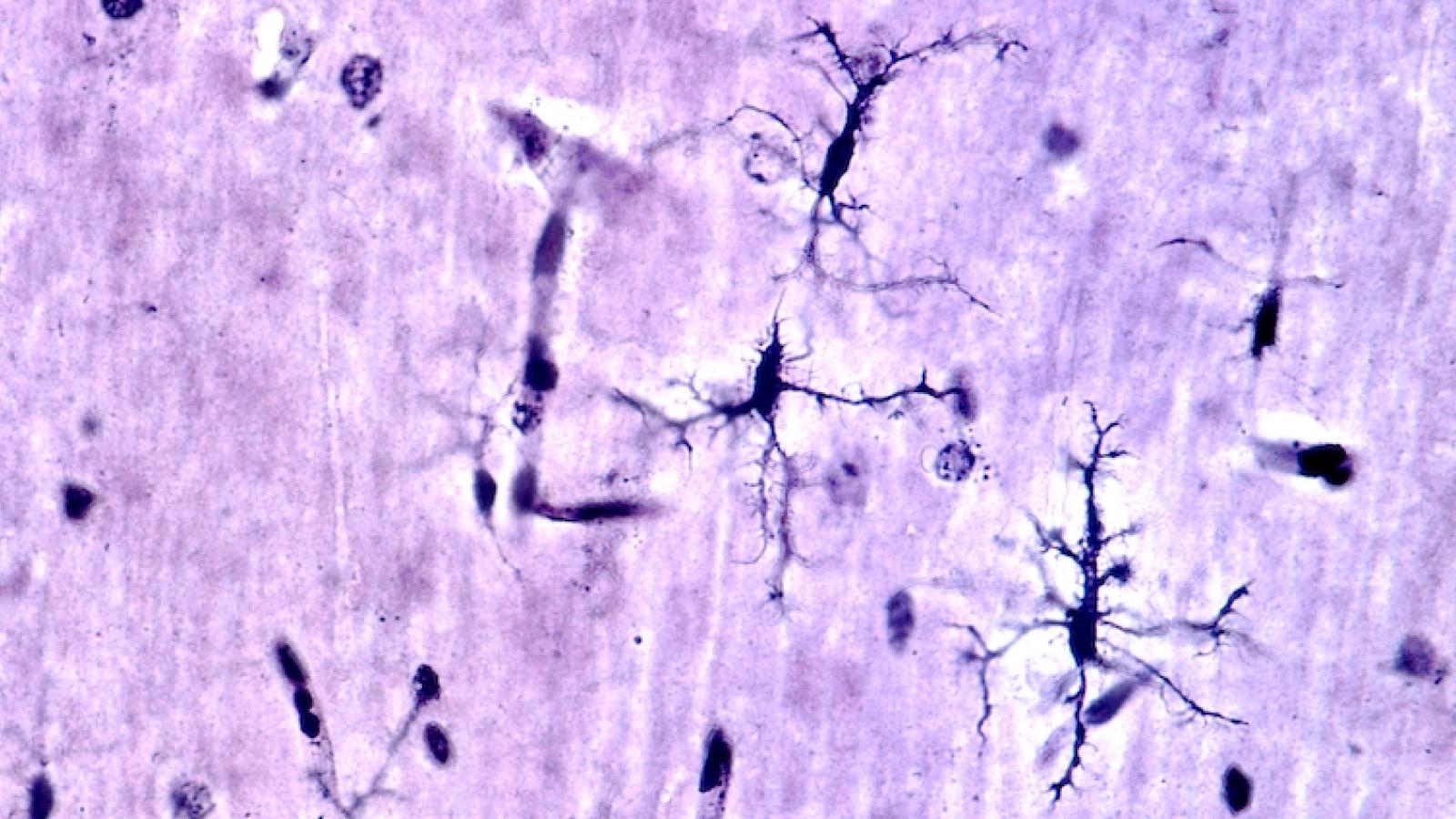We are delighted to announce the latest recipients of our cross-centre postdoctoral awards – a scheme designed to stimulate exciting new academic relationships and encourage collaboration between researchers across our seven centres. The five projects awarded in this round will investigate the genetics of different neurodegenerative diseases, the role of microglia in Alzheimer’s, and more.
One of our strengths as an institute is our diverse range of expertise. The UK DRI brings together researchers from a wide range of backgrounds to tackle dementia from multiple angles, and collaboration is key to this.
The cross-centre programme is one initiative designed to stimulate collaboration, providing funding to pairs of UK DRI Group Leaders (or a Group Leader with an associated member or Emerging Leader) for one postdoctoral researcher over three years, who will share their time between two labs at different UK DRI centres. Those involved in the projects benefit greatly from the shared expertise of the Group Leaders and access to state-of-art technology and resources.
projects were awarded funding in this round of cross-centre postdocs
Current cross-centre postdocs tell us that this programme provides them with greater opportunities to develop a diverse range of skills and to build a network of collaborators than they have experienced in other postdoc positions. We are excited to see this programme grow, forging new and exciting collaborations and avenues of research across the UK DRI.Dr Aoife KielyUK DRI Science Review Manager
The following five projects were selected for funding from a pool of high-quality applications:
The function of DNA changes that increase Parkinson’s disease risk
A feature of Parkinson’s disease is the death of brain cells called dopaminergic neurons, together with dysfunction of other cell-types in the midbrain. However, information regarding how genes are expressed in cell-types of the midbrain is lacking and this knowledge is critical to understanding the function of DNA changes associated with Parkinson’s disease. In this project, the UK DRI at Imperial and Cardiff are collaborating, using computational approaches to show how gene regulation of midbrain cell-types will reveal new targets for the genetic risk of Parkinson’s disease.

Prof John Hardy (UK DRI at UCL) and Prof Peter Holmans (UK DRI Co-Investigator, Cardiff University)
Identifying genetic variabilities which influence age at onset and progression of polyglutamine disorders
Polyglutamine disorders, such as spinocerebellar ataxias (SCAs) and Huntington’s disease (HD) are caused by DNA mutations where a segment of the DNA sequence is repeated multiple times, resulting in the production of an abnormally long version of the protein. The number of repeats impacts the age at which disease starts – the more repeats, the earlier the onset of disease. However, repeat length does not explain all the variation in disease onset, and several other modifier genes have been discovered for HD. This study, by the UK DRI at UCL and Cardiff, will investigate the genetic modifiers of onset and progression in the SCAs, aiming to identify novel genes and biological pathways, alongside those shared with HD. These discoveries will aid the development of targeted with new therapies for these disorders.
Neuroimmune mechanisms of neuronal imbalance in Alzheimer's disease
Microglia, the brain’s primary immune cells, are implicated in Alzheimer’s disease, but the reasons behind this are not well understood. Synapses, the connection points between two neurons, are lost in Alzheimer’s and this correlates to memory impairments. People with Alzheimer’s also show elevated electrical brain activity. This project, in collaboration between the UK DRI at UCL and Imperial, will investigate whether there is a link between these three aspects: increased electrical activity, synapse loss and microglia, in order to increase fundamental understanding of the role of microglia in Alzheimer’s disease.
Electrical muscle stimulation for treatment of Parkinson's disease
Currently, there is a lack of understanding of the mechanisms of Parkinson’s disease that lead to difficulty in movement. A recent theory suggests the central nervous system (CNS) handles complex movement tasks by controlling neural functions as groups, or synergies, as opposed to individual muscles. The concept has been demonstrated in animals, humans during activities of daily living, and patients with neurological disorders. This project, from the UK DRI Care Research & Technology and Imperial centres, proposes the use of muscle synergies to offer fundamental insights into the mechanisms of Parkinson’s disease, and as a basis to direct electrical stimulation for the treatment of the condition. The goal is to identify differences in muscle synergies between Parkinson’s patients and control participants.

Prof Paul Morgan (UK DRI at Cardiff) and Dr Aitana Sogorb-Esteve (UK DRI at UCL)
Complement markers in frontotemporal dementia
There are no specific clinical or laboratory findings to identify frontotemporal dementia (FTD), and its cause is as yet unknown, although one important factor that contributes to damage to the brain in FTD is inflammation. Complement is a system of proteins in blood that exists to counter bacterial infections, either by directly killing bacteria or provoking white blood cells to eat them. It is a crucial part of the immune system, evolved to protect us from infection; however, inappropriate activation of complement leads to damage to cells and inflammation. To date there are no comprehensive studies profiling complement blood biomarkers in FTD. This joint project by the UK DRI at UCL and Cardiff will deliver an in-depth analysis of complement biomarkers and brain-specific markers across the disease course in FTD.
Round 5 of this programme will launch in spring 2023 (closing 25 May 2023). Find out about the projects awarded funding in the first, second and third round of this award.
Article published: 6 January 2023
Banner image: Shutterstock / Jose Luis Calvo
